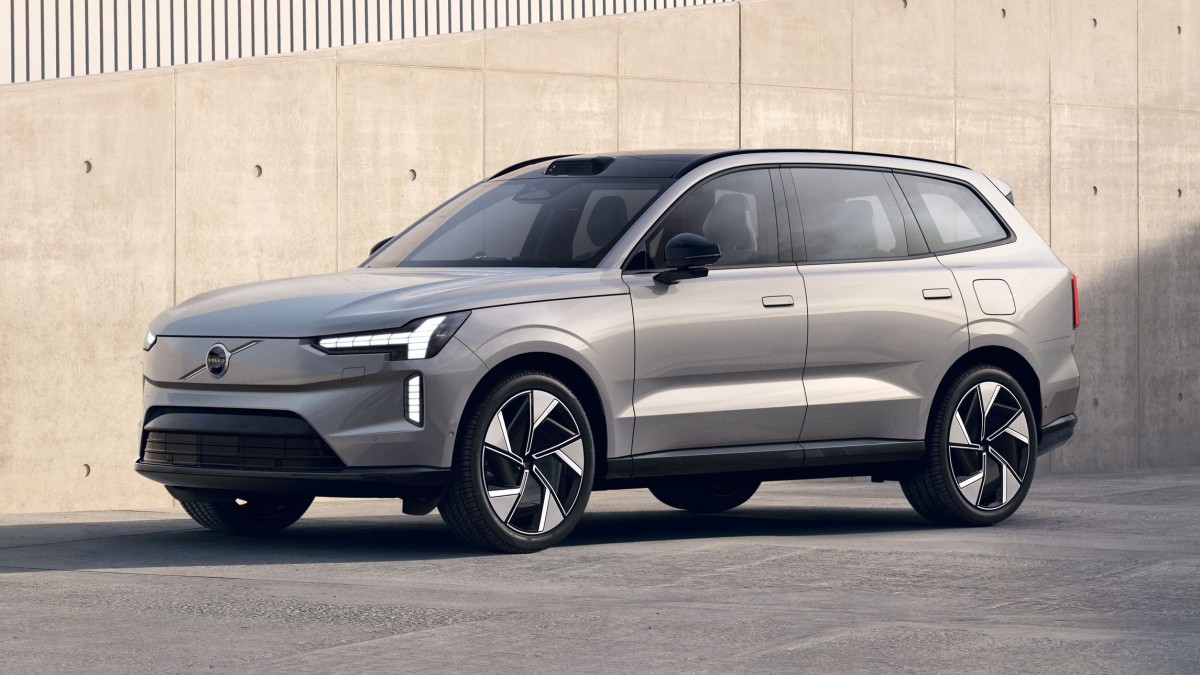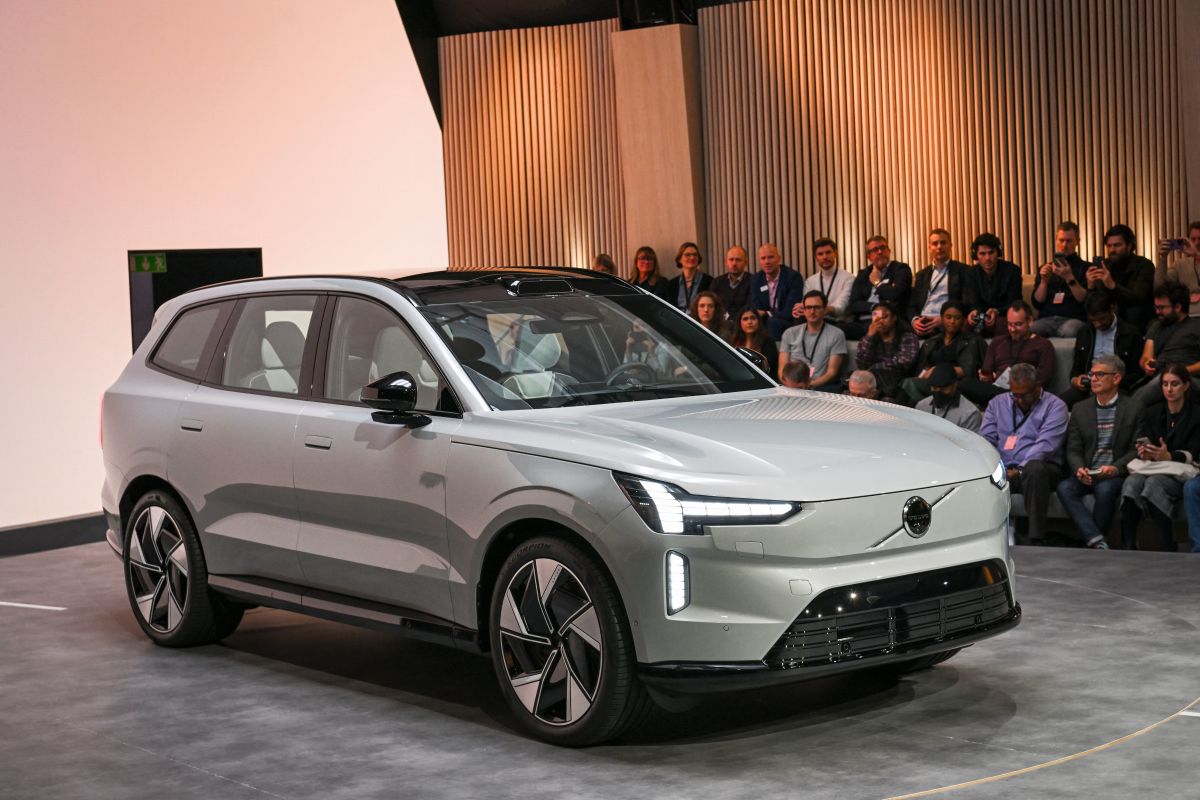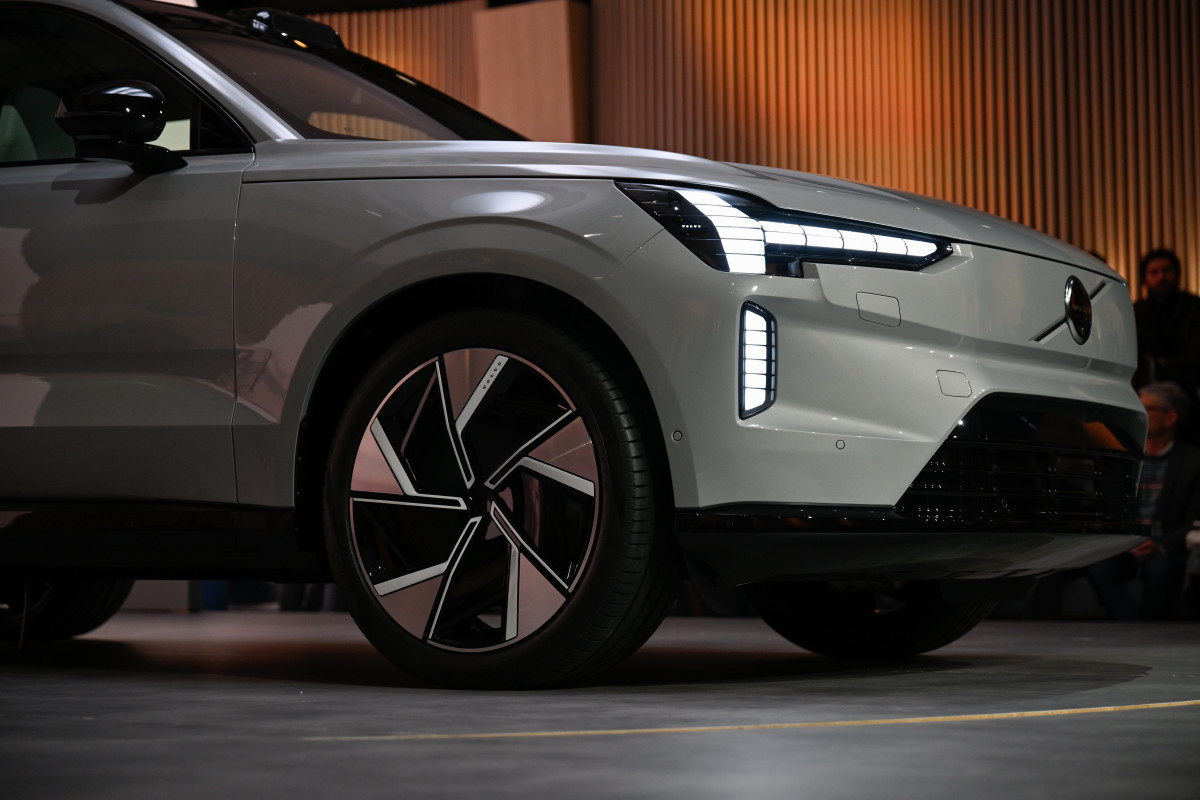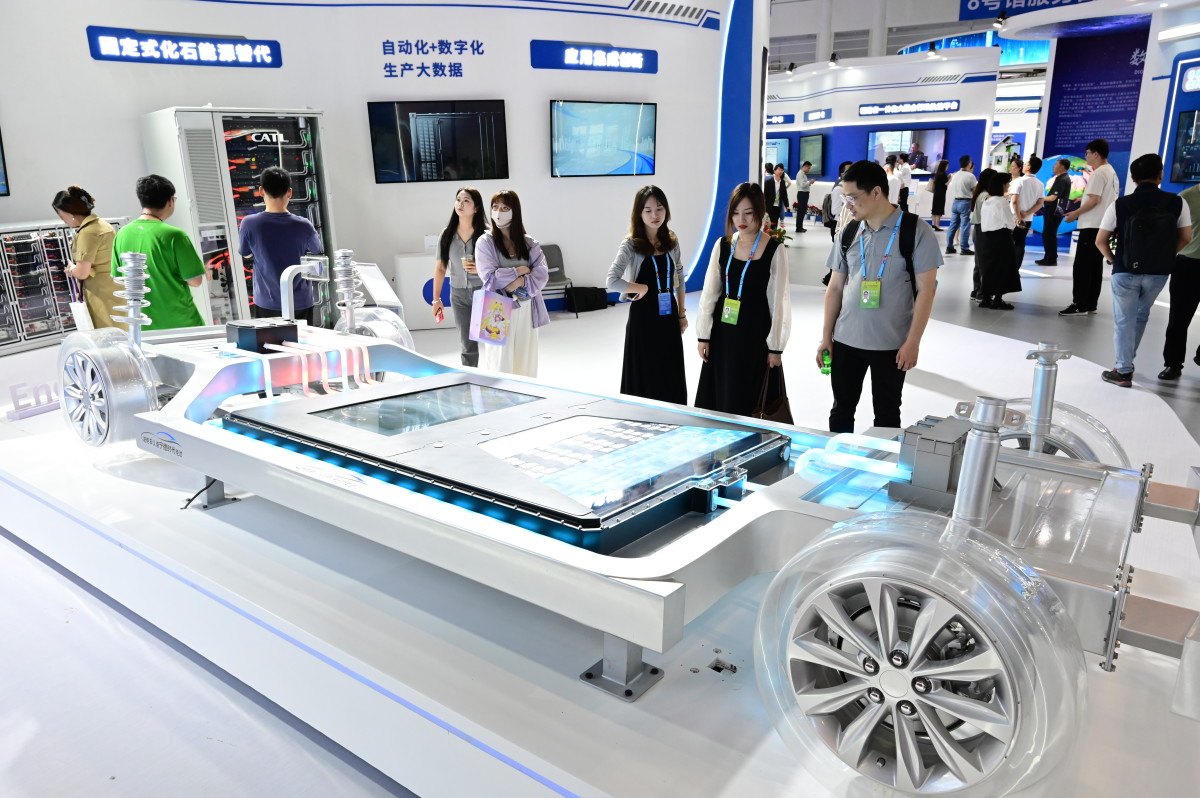
A new EV from Swedish brand Volvo will be the first to offer what the brand calls a "battery passport," which seeks to address concerns brought up by regulators in the EU and the U.S., concerned and conscious EV owners and the next generation of used EV buyers.
Related: Outspoken Republican governor sets the political tone on EVs

Dubbed the EX90, the Geely-owned (GELYF) brand's new EV is about the same size as the XC90, its popular seven-seater family SUV. But among its luxurious appointments and technological features that includes 300 miles of all-electric range, the EX90 is also the first vehicle to offer battery passport ahead of looming EU regulations.
As per a report by Reuters, the aptly-named "passport" is developed in partnership between Volvo and the British startup Circulor. The new technology took five years to develop, which creates a permanent digital footprint for vehicles using blockchain technology to map out a company's supply chain.

According to the rules that the European Union has set for 2027, battery passports will be required to show critical information that is of interest to regulators. The mandate requires that a vehicle's passport shows a battery's composition, where the raw materials to make the battery came from, the carbon footprint of the vehicle, as well as the amount of recycled materials used in the vehicle.
In this car, interested parties looking to view the Volvo's battery passport can scan a QR code inside of the driver's side door. Though the EX90 will be the first to incorporate this tech, it will come standard on all Volvo EVs.
In addition to what's required, Volvo is including information on the state of a EV battery's health, which can alert current owners of EVs and inform buyers of used ones when batteries need replacing. In addition, for $10 per vehicle, Volvo will save battery health information for specific EVs.
By launching this technology three years ahead of the deadline, Volvo's cements a commitment for transparency to buyers as it moves forward towards an all-electric future.
How Volvo's new tech can help EV adoption

In December 2023, revised rules in accordance with the Inflation Reduction Act has tightened restrictions on the kind of EVs and plug-in hybrids that are eligible for a $7,500 federal EV tax credit.
The revised rules made sense, as new EV buyers would be able to apply their government credits at the dealership as a "discount" or "coupon" instead of claiming it on their next tax return.
As of Jan. 1, 2024, EVs sold in the United States that contain any parts of the battery that are made or assembled by companies based in, owned or are subsidiaries of those originating from "foreign entities of concern," such as China, Russia, Iran or North Korea (DPRK) are not eligible for any part of the $7,500 Federal Tax Credit.
This rule has caused some hiccups in the industry, and has cut the list of tax credit-eligible cars significantly. Additionally, in 2025, the exclusion will also apply to key minerals used in EV batteries that are extracted, processed or recycled.
More Business of EVs:
- New study suggests EVs are supercharging an impending environmental crisis
- GM President has bold plans for an iconic sports car's EV resurrection
- Ford CEO says this iconic model will "never" be an EV
Related: A Chinese automaker is eliminating the human factor from these roles on the production line

In public comments submitted on Jan. 18, the Alliance for Automotive Innovation, a lobbying group that speaks for automotive giants like GM (GM) , Stellantis (STLA) , Ford (F) , Toyota (TM) , Volkswagen (VWAGY) and battery suppliers Panasonic (PCRFF) and Samsung SDI (SSNLF) urged the Treasury to be looser with these provisions, arguing that government's deadline of 2026 of creating a standard of tracing materials is too soon.
"It is unlikely that industry will have developed such standards or systems by 2027. Tracing those materials is challenging and costly, and seemingly unnecessary," Alliance for Automotive Innovation energy and environment vice president Dan Bowerson said. "Tracing unique critical minerals to each battery cell is unnecessary so long as the [automaker] can attest that the appropriate mass of critical minerals equates to the appropriate number of [FEOC]-compliant batteries."
By implementing the requirement of a "battery passport," the levels of accountability and transparency that the Treasury wants to see can be possible, and with viability of an automaker's EV being eligible for the coveted $7,500 federal EV tax credit, there is an incentive for following the rules.
Related: Veteran fund manager picks favorite stocks for 2024







